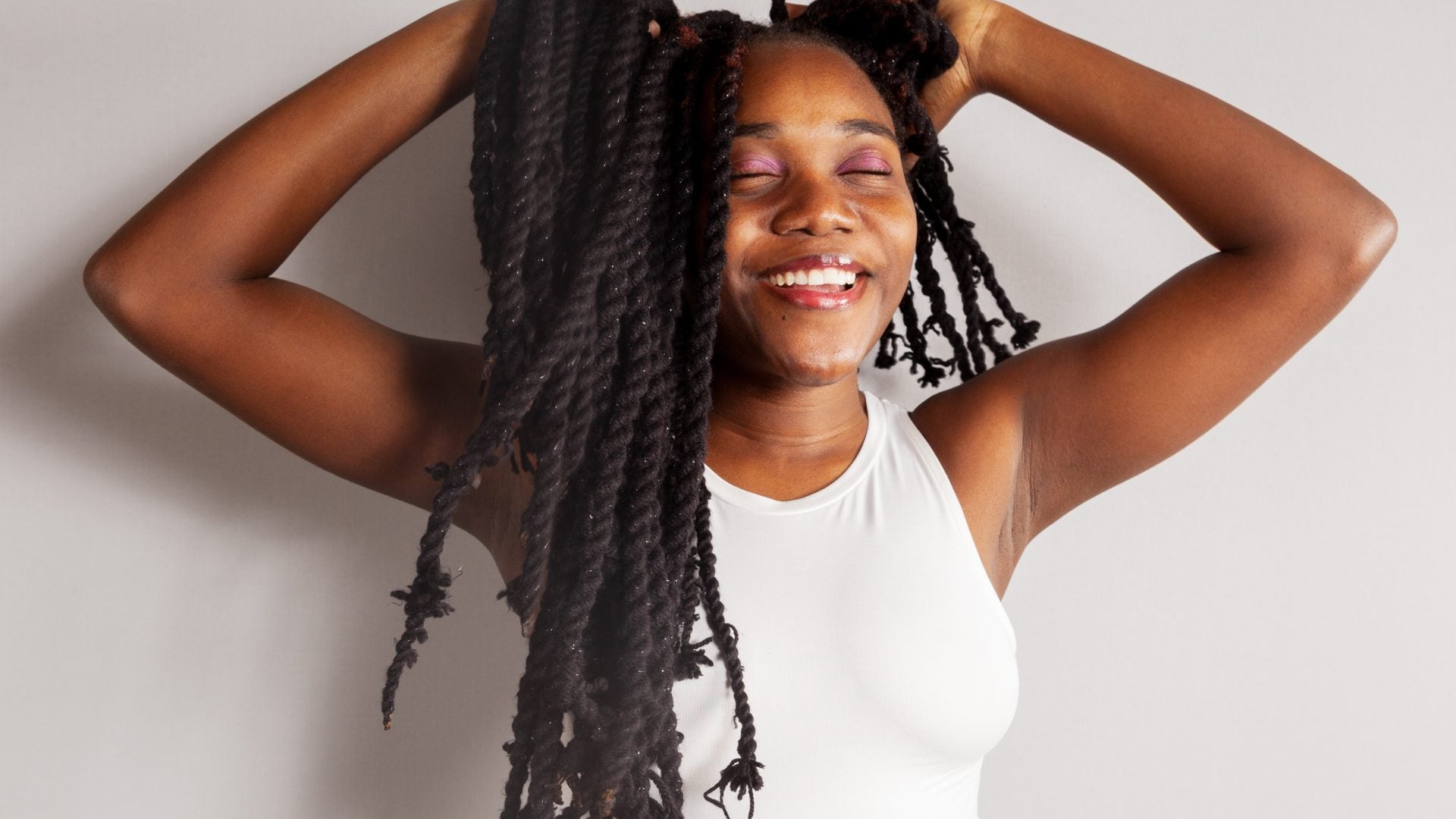Excerpt from “In Our Heads About Our Hair” from Hemamset Angaza on Vimeo.
The documentary In Our Heads About Our Hair tackles the age-old subject of Black women and our relationship with our hair. Co-produced by Anu Prestonia, Maitefa Angaza and Paulette Maat Kesa Tabb, the film explores how our self-esteem is directly affected by the strands on our head.
We sat down with Angaza to find out why our hair is such a touchy topic and what she hopes the film will accomplish.
ESSENCE.com: How did you come up with the concept for the film?
MAITEFA ANGAZA: One of our co-producers is Anu Prestonia, the founder and owner of Khamit Kinks natural hair salon. Anu was actually looking to do a social message project around Black women and self-esteem. We thought we were doing a 20-minute video project and as we started to see the number of perspectives that we wanted to include, we realized we had a feature documentary on our hands.
ESSENCE.com: Why did you decide to move forward with making the documentary?
ANGAZA: We wanted to do something to help Black women and young Black girls to feel whole and beautiful. The film is really about the journey to self-acceptance and freedom. We don’t feel like anyone should dictate to anyone else how they should wear their hair, but the bottom line is that your default mindset should be about self-love and it’s not always easy for us to get there. There are so many messages from society that say you’re not 100% acceptable unless you look a certain way or your hair is a certain way and this is still an issue for us. Some people have asked us if our film a response to Chris Rock’s Good Hair and that’s one thing I’d like to clear up. We started this film in June 2009 and Good Hair was released in September 2009. We had not seen Good Hair when we started our project and we do cover some different territory.
ESSENCE.com: Why is hair so attached to our self-love and self-confidence?
ANGAZA: It goes back to the slave indoctrination process. If you’re a member of an oppressed group, you feel that power lies in identifying yourself with the group that seems to hold the power. For our ancestors, conforming was a matter of life and death. They had the idea that if they could make themselves look like the people in power, they’d have a better chance of getting work, being accepted and really surviving. We also know this is not unique to the United States, but it’s a global phenomenon, too. People think if they can change their hair, they will fit in to some degree. I’m not saying that all women who press their hair or wear wigs or weaves have that conscious thought, but we sometimes make that decision subconsciously without thinking of where it comes from. It’s fine if I choose to relax or press my hair as long as I realize that I’m perfectly fine with the hair that God put on my head.
ESSENCE.com: What was one of the most emotional interviews you conducted while making the film?
ANGAZA: One of the most touching moments was when we spoke with author asha bandele. She spoke about growing up in her family as a person with fairer skin and a finer grade of hair and the fact that she was always complimented and rewarded by her family and neighbors. She was very close to her sister who was darker with coarser hair and asha said it was painful for her. asha said she loved playing in her sister’s hair because it felt so soft, thick and luxurious. She tried to figure out why her hair was supposed to be the “good” hair and why her sister didn’t get the same compliments. asha tried to tell her sister that she was beautiful but it didn’t have an impact because of how negatively she was treated in compared to her lighter sister with “good” hair.
ESSENCE.com: What do you hope people will take away from the film?
ANGAZA: Our primary goal is to start a conversation about self-love. We want to pass on this feeling of self-love and self-esteem on to our young people no matter how they wear their hair. We talk about some things that are painful and we really want to help one another to heal and celebrate ourselves.
Check out an exclusive clip from In Our Heads About Our Hair above. The film premieres at the Brooklyn Art Museum’s New Voices in Black Cinema Film Festival on Monday, February 20.





